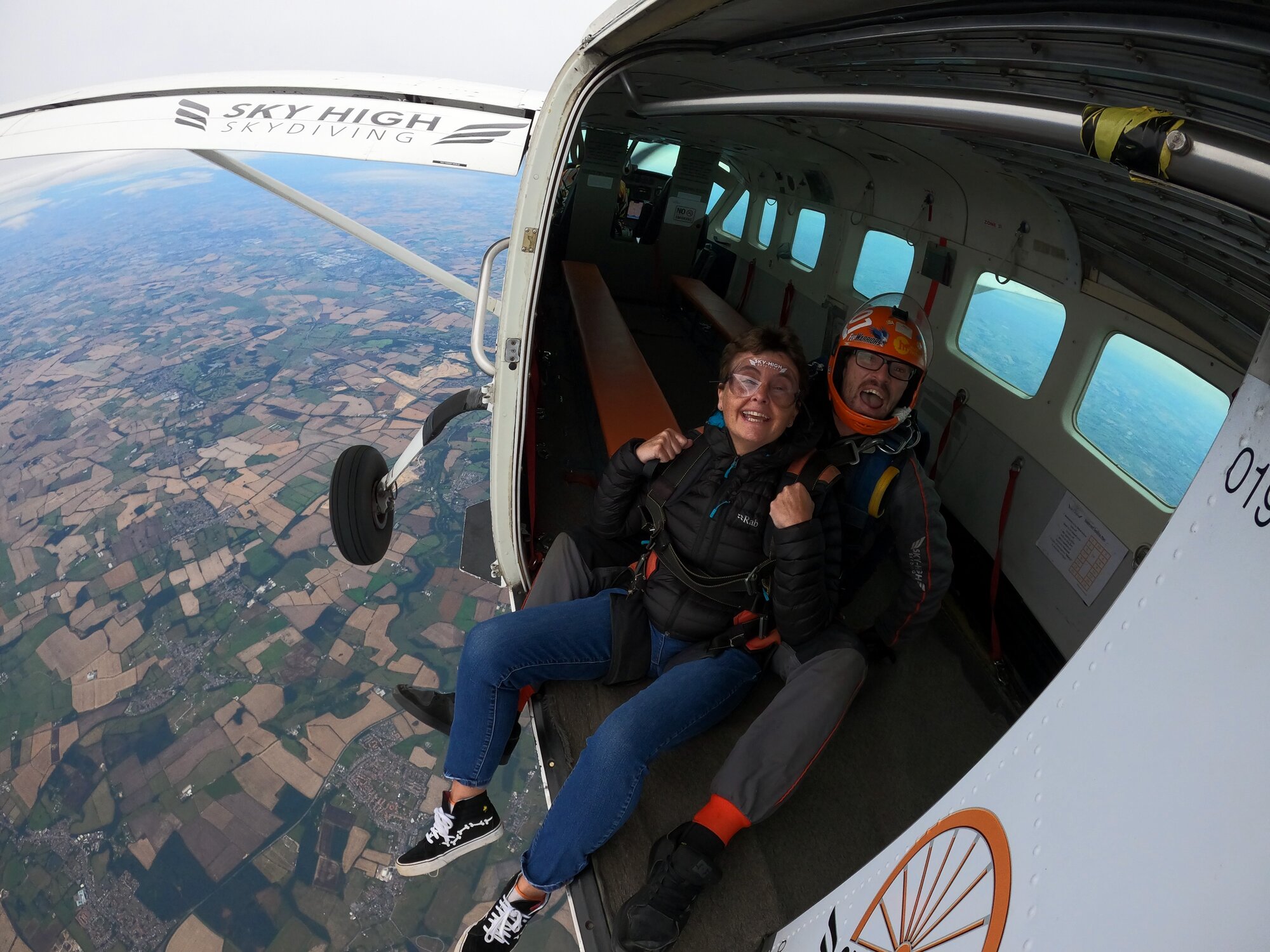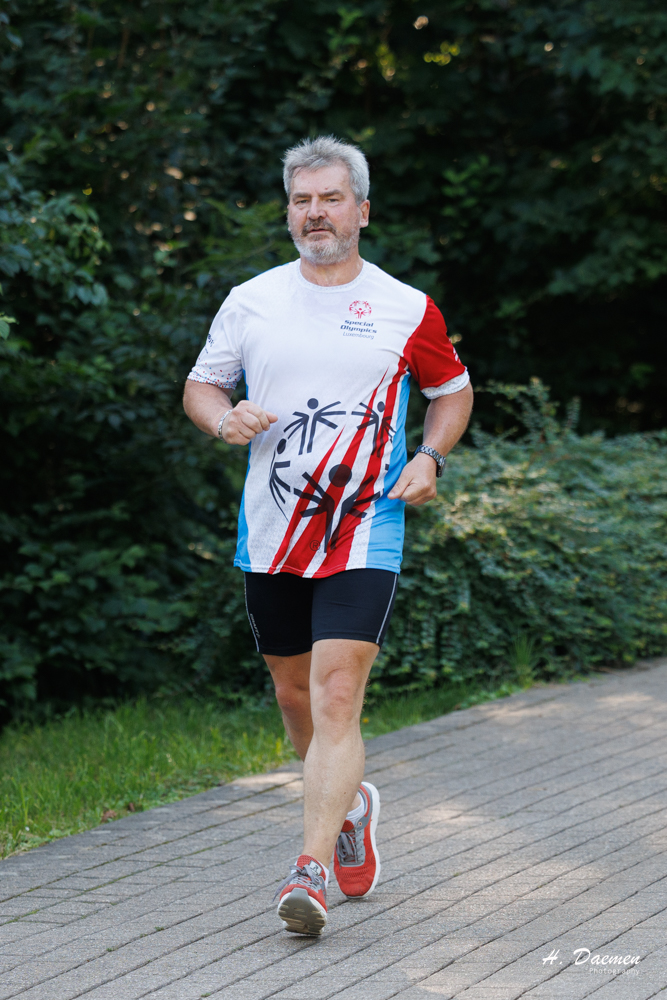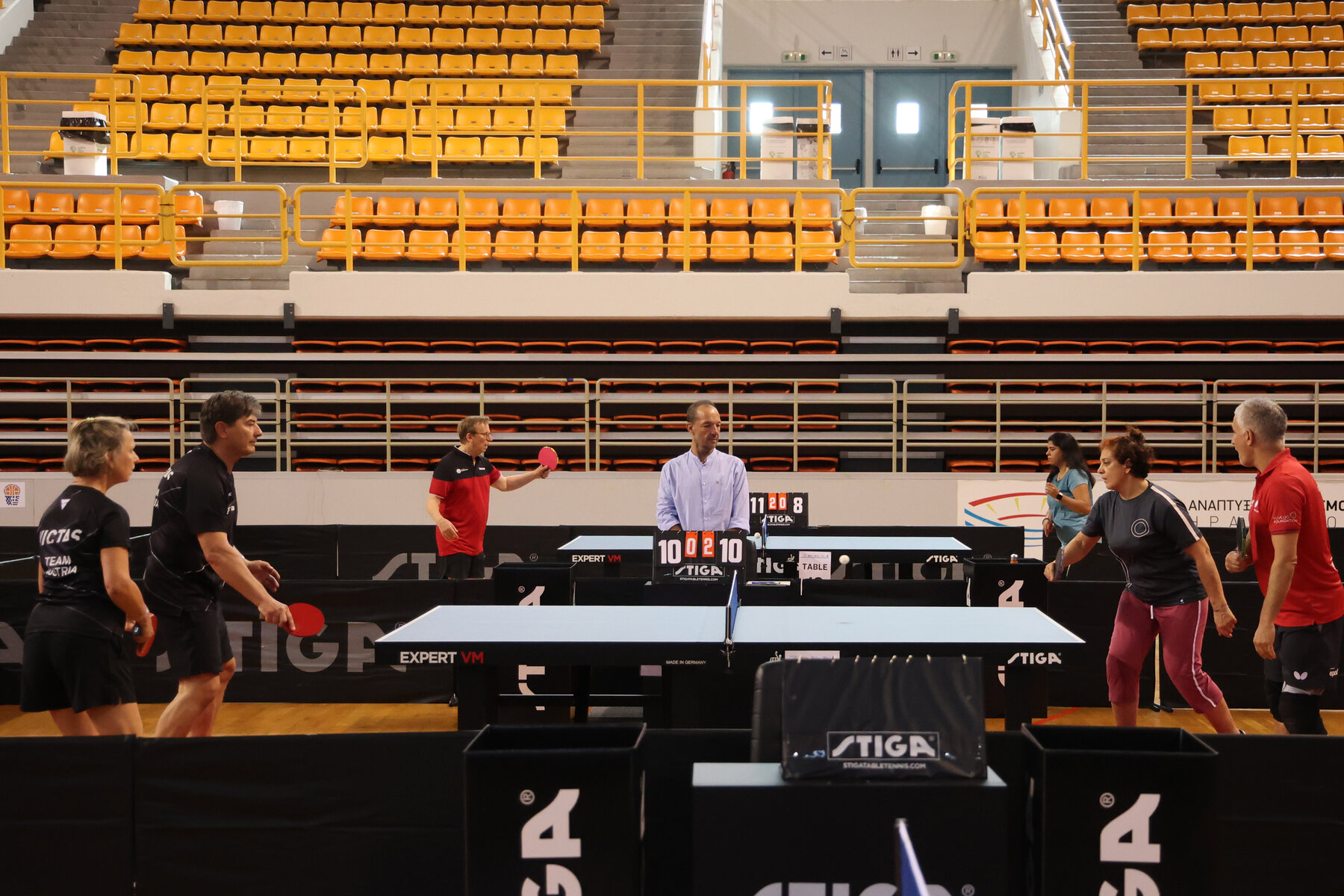Turning the tables
For people suffering from Parkinson's, a table festival in France offers a chance to forget their illness and make new friends.
Ten years ago, Veronique Grisot Garbacz was watching one of the children she coaches in baseball, when he hit a home run. She leapt up, screaming “Go, Go, Go!”. Moments later her happiness turned to worry. She had noticed an uncontrollable trembling in her hands. She knew something was not right. After two years of visiting doctors, Veronique was diagnosed with Parkinson’s disease. Although her family were worried, she was relieved to finally have a name of her condition.
The neurologist told her that, these days, she can easily live with it. “I decided to live,” she says. “The quicker you accept your disease the better you are capable of handling it. I know some people who don’t accept the illness and unfortunately, they are always sad, and they keep pushing people away from them.”
In 2022, at the age of 50, Veronique read about the World Table Tennis for Health Festival. It is an event, started by the International Table Tennis Federation Foundation (ITTF), that brings together people with Parkinson’s disease from around the globe to play the sport, hear about new research, and get to know each other. She decided to participate, and in order to be ready, she took lessons three times a week. She found others and formed a team. She won a Bronze medal in 2023. This year, the festival started on October 23rd in Maizières-les-Metz, and it will last for five days.

Ramón Ortega Montes, the ITTF Foundation Health Impact Manager, said the aim of the festival is to provide a friendly space for those who face the challenge of coping with Parkinson’s to enjoy life. “Four years ago, in the first championships, we had around 60 players,” he said. “This year, we have 149 players. This will be the second year we involve people with Alzheimer’s disease as well. Every now and then, someone reaches out after watching a video of ours, or hearing about a friend’s experience, saying that they want to be with us next year.”
Veronique believes that the festival is a great way for people with Parkinson’s to meet and get away from the stigma that some feel. “You make a lot of friends of all ages.” One visited her in Paris last year. She says Parkinson’s is a little like surfing. “One day you are good and up in the air, and the next you get hit very hard.” she says. She adds that that some of the bad symptoms, in addition to the trembling, are the shivering teeth, the occasional inability to walk, and most importantly, the lack of sleep. “Yesterday, I had a bad morning, so I called my friend and chit-chatted with her. It is calming.”
Veronique now lives in Montpellier, France, the mother of two young men of 19 and 12. The younger son, Kenji, is going to this year’s competition as her coach. “I tell my friends at school about Parkinson’s disease and the championships, and I hope my mother wins another medal this year,” he says. In addition, Veronique is working on an initiative on her own targeting those with Parkinson’s disease to encourage them to join table tennis clubs near them.

When I was first diagnosed I thought my life was over, but then I made the decision:
It is my life, not Parkinson’s.
Julie Norris is a 54 years old from North Yorkshire in England. She was diagnosed with Parkinson’s in 2021. When she was young, she used to play many different kinds of sports, but then she got busy with work, marriage and personal life.
“When I was first diagnosed I thought my life was over, but then I made the decision: It is my life, not Parkinson’s.” She describes the disease as an uninvited friend who has to live by her rules not the other way around. She went back to sports, getting involved in anything she could join. “I saw a poster of the championship and I got really excited. I started training three times a week. I am looking forward to playing and meeting new people. I feel like a young girl, again.”

And then there is Jean-Luc Zossong, a 60 years old from Luxembourg. It will also be his first time. He started playing table tennis a year and half ago. He says it has helped him become more flexible and he is less afraid of falling while walking. Jean-Luc will go with six other people who also have Parkinson’s. “We have become good friends. I am looking forward to having fun, meeting new players and attending the sessions.” All of the participants are keen to find out the latest information on their illness, but most seem to be going to get to know others and have a good time.



